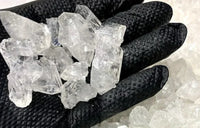Recent posts
-

-
 What Are THCa Diamonds?October 14, 2025
What Are THCa Diamonds?October 14, 2025 -
 Delta 9 Gummies GuideOctober 8, 2025
Delta 9 Gummies GuideOctober 8, 2025 -
 Head High vs Body High: A Guide to Cannabis EffectsOctober 1, 2025
Head High vs Body High: A Guide to Cannabis EffectsOctober 1, 2025 -
 What is THCA Crumble?September 22, 2025
What is THCA Crumble?September 22, 2025 -
 10 Ways to Elevate Self-Care Awareness MonthSeptember 14, 2025
10 Ways to Elevate Self-Care Awareness MonthSeptember 14, 2025

Delta 8 THC vs HHC: What's the Difference?
By Zero Point
Table of Contents
In recent years, the cannabis industry has seen a meteoric rise in the variety of products and compounds available to consumers, beyond the well-known Delta 9 THC and CBD. Among these new entrants, Delta 8 THC and Hexahydrocannabinol (HHC) have garnered significant attention for their unique effects and legal statuses. As consumers navigate this evolving landscape, understanding the nuances between these compounds becomes essential. This blog aims to demystify Delta 8 THC and HHC, comparing their chemical structures, legal implications, effects on the body, safety profiles, and market presence. Whether you're a cannabis connoisseur or a curious newcomer, this comprehensive guide will provide you with a deep dive into what sets these cannabinoids apart.
Understanding Cannabinoids
The Broad World of Cannabinoids: Beyond the Familiar
Cannabinoids are a diverse group of compounds found in the Cannabis sativa plant. Over 100 different cannabinoids have been identified, each with unique characteristics and effects on the human body. These compounds interact with the body's endocannabinoid system (ECS), a complex network of receptors and neurotransmitters involved in regulating various physiological processes.
The Endocannabinoid System and Cannabinoid Interaction
The ECS plays a crucial role in maintaining homeostasis, influencing functions like mood, appetite, pain sensation, and memory. Cannabinoids bind to ECS receptors (CB1 and CB2) throughout the body and brain, modulating these functions. The interaction varies depending on the cannabinoid's structure and the receptor type, leading to different effects.
Key Cannabinoids: A Quick Comparison
- CBD (Cannabidiol): Non-psychoactive; known for its therapeutic benefits like reducing anxiety and pain.
- Delta 9 THC (Tetrahydrocannabinol): The most psychoactive cannabinoid, associated with the "high" in marijuana.
- CBN (Cannabinol): Formed from THC degradation; mild psychoactive effects and potential sedative properties.
- CBG (Cannabigerol): Non-psychoactive; early research suggests potential health benefits
Delta 8 THC - An Overview
Delta 8 THC: The Gentler Cousin of Delta 9
Delta 8 THC, chemically known as delta-8-tetrahydrocannabinol, is a minor cannabinoid naturally present in cannabis plants in small quantities. Its molecular structure is similar to that of its more famous relative, Delta 9 THC, but with a few critical differences that impact its potency and effects.
Chemical Structure and Psychoactive Effects
The key difference lies in the position of a double bond in their molecular chains: Delta 8 has the double bond on the 8th carbon chain, while Delta 9 on the 9th. This slight shift significantly influences how Delta 8 THC interacts with the ECS, resulting in a less potent psychoactive effect compared to Delta 9 THC. Users often report a clearer high with less anxiety and paranoia, making it a preferable option for those sensitive to the intense effects of traditional THC.
Legal Status and Safety Profile
Delta 8 THC occupies a gray area in terms of legality. Derived from hemp (cannabis with less than 0.3% Delta 9 THC), it can be federally legal in the United States under the 2018 Farm Bill. However, its legal status varies by state, and it's essential to stay informed about local laws.
While research on Delta 8 THC is still in its infancy, preliminary studies and anecdotal evidence suggest a favorable safety profile. However, as with any cannabinoid, responsible usage is crucial, and consumers should be cautious about dosage and purity.
Potential Benefits and Risks
- Benefits: Users often seek Delta 8 THC for its potential to alleviate stress, improve mood, stimulate appetite, and reduce pain and inflammation.
- Risks: The risks are generally considered lower than Delta 9 THC, but they can include dry mouth, red eyes, and short-term memory disturbances.
What is HHC - Hexahydrocannabinol Explained
HHC: The Novel Cannabinoid on the Block
Hexahydrocannabinol, commonly known as HHC, is one of the newer cannabinoids to enter the cannabis market. Unlike Delta 8 THC, HHC is not naturally abundant in the cannabis plant. It's often created through a hydrogenation process, where Delta 9 THC is converted into HHC, altering its molecular structure and properties.
Chemistry and Comparison to THC
Through hydrogenation, the double bonds in THC's molecular structure are broken and replaced with hydrogen atoms. This alteration makes HHC more stable and less prone to oxidation, potentially extending its shelf life. In terms of psychoactive effects, HHC is similar to THC but generally milder, offering a more subtle and relaxing experience.
Legal Aspects and Safety Considerations
HHC's legality is complex, primarily because it is synthetically derived. While it might be federally legal under the Farm Bill, the nuances of its synthesis and classification could affect its legal status. Consumers should be aware of the evolving legal landscape surrounding HHC.
Safety-wise, the main concern with HHC is the lack of extensive research and regulation. As with Delta 8 THC, the long-term effects and potential risks of HHC remain largely unknown.
Possible Therapeutic Uses and Side Effects
- Therapeutic Uses: Preliminary evidence suggests potential benefits in pain relief, anxiety reduction, and insomnia management.
- Side Effects: Similar to other cannabinoids, HHC may cause dry mouth, dizziness, and changes in appetite.
Comparing the Effects of Delta 8 THC and HHC
When venturing into the realm of cannabinoids beyond the well-trodden path of Delta 9 THC, consumers often find themselves weighing the effects of Delta 8 THC against HHC. Both compounds offer unique experiences, shaped by their chemical structures and interactions with the body's endocannabinoid system. Understanding these differences is key to choosing the right cannabinoid for your needs.
Delta 8 THC: A Milder, More Manageable High
- Psychoactive Intensity: Delta 8 THC is psychoactive, but its effects are generally considered to be less intense than those of Delta 9 THC. Users report a clearer, more focused high, which allows for greater functionality and less cognitive distortion.
- Anxiety and Paranoia: A significant advantage of Delta 8 THC is its reduced tendency to induce anxiety and paranoia, making it a preferable option for those who are sensitive to the side effects of stronger THC variants.
- Pain Relief and Relaxation: Like its more potent counterpart, Delta 8 THC is sought after for its analgesic and anti-inflammatory properties, offering a soothing effect that can alleviate pain and promote relaxation.
- Appetite Stimulation: Delta 8 THC is noted for its ability to stimulate appetite, which can be beneficial for individuals looking to increase food intake due to medical conditions or treatments.
HHC: Stability and Subtlety in Effect
- Psychoactive Profile: HHC also possesses psychoactive properties, but users often describe its effects as even more subtle than those of Delta 8 THC. This subtlety makes HHC an attractive option for those seeking mild euphoria without overwhelming psychoactive experiences.
- Duration and Stability: Due to its hydrogenated structure, HHC is more stable than many other cannabinoids, potentially offering longer-lasting effects. This stability also contributes to a longer shelf life, making HHC-infused products more durable over time.
- Anxiety Reduction: Similar to Delta 8 THC, HHC is reported to reduce anxiety without the intense high that can sometimes exacerbate feelings of unease, providing a calm and relaxing experience.
Choosing Between Delta 8 THC and HHC
The choice between Delta 8 THC and HHC depends on personal preferences and the desired effects. For those seeking a milder alternative to Delta 9 THC with reduced risk of anxiety and paranoia, Delta 8 THC may be the preferred choice. It offers a balance of psychoactivity and therapeutic benefits without the intensity of traditional THC.
On the other hand, HHC might be the right option for users looking for an even more subdued experience, with longer-lasting effects and a focus on relaxation and mild euphoria. Its stability and potential for a longer shelf life also make it appealing for both consumers and manufacturers.
Delta 8 THC and HHC in the Market
Navigating the Market: Understanding Delta 8 THC and HHC Products
As consumer interest in Delta 8 THC and HHC grows, so does the variety of products containing these cannabinoids. From edibles to tinctures, vapes, and more, the market is rapidly expanding, offering a wide range of options for those looking to explore these compounds.
Product Availability and Types
- Delta 8 THC Products: You can find Delta 8 THC in various forms, including gummies, oils, vape cartridges, and even infused flowers. Each type offers a different onset time and duration of effects.
- HHC Products: HHC is typically available in similar forms, with vapes and edibles being the most common. The effects and potency can vary, making it important for consumers to start with lower doses.
Quality and Regulation Concerns
A significant challenge in the cannabinoid market is the lack of standardization and regulation, particularly for newer compounds like Delta 8 THC and HHC. This can lead to inconsistencies in product quality and potency. Consumers should be vigilant and seek products from reputable sources that provide third-party lab testing results.
Choosing and Using Products Safely
- Research: Understand the product, its source, and read user reviews.
- Dosage: Start with a low dose, especially if you are new to these cannabinoids.
- Legal Considerations: Ensure the product is legal in your area.
Tips for First-Time Users
- Start with a small dose and gradually increase as needed.
- Choose products from reputable brands that offer transparency about their ingredients and lab testing.
- Be aware of the legal status of these cannabinoids in your jurisdiction.
- Consult with a healthcare professional if you have underlying health conditions or are taking other medications.
Future of Cannabinoid Research
The Emerging Horizons in Cannabinoid Science
The study of cannabinoids like Delta 8 THC and HHC is an exciting and rapidly evolving field. As researchers continue to unravel the complexities of the cannabis plant, new potentials for these compounds are emerging.
Current Trends and Ongoing Studies
Research is increasingly focusing on the therapeutic potentials of cannabinoids, with Delta 8 THC and HHC being of particular interest due to their unique properties. Studies are exploring their efficacy in pain management, anxiety relief, and neuroprotective effects, among other areas.
The Importance of Informed Consumption and Education
As the body of research grows, so does the need for consumer education. Understanding the science behind these compounds is crucial for safe and informed usage. It's important for consumers to stay updated with scientific developments and regulatory changes.
Conclusion
Delta 8 THC and HHC: A Journey of Discovery and Responsibility
In conclusion, Delta 8 THC and HHC represent exciting new chapters in the story of cannabinoids. Their unique properties and potential benefits offer new possibilities for consumers and researchers alike. However, with these opportunities come responsibilities: the need for continued research, informed consumption, and adherence to legal and safety guidelines.
As we explore these compounds, it's crucial to remember the importance of education and responsible usage. Consumers should approach these products with curiosity but also caution, seeking out reliable information and quality products. The future of cannabinoid research holds great promise, and staying informed is key to navigating this evolving landscape.








